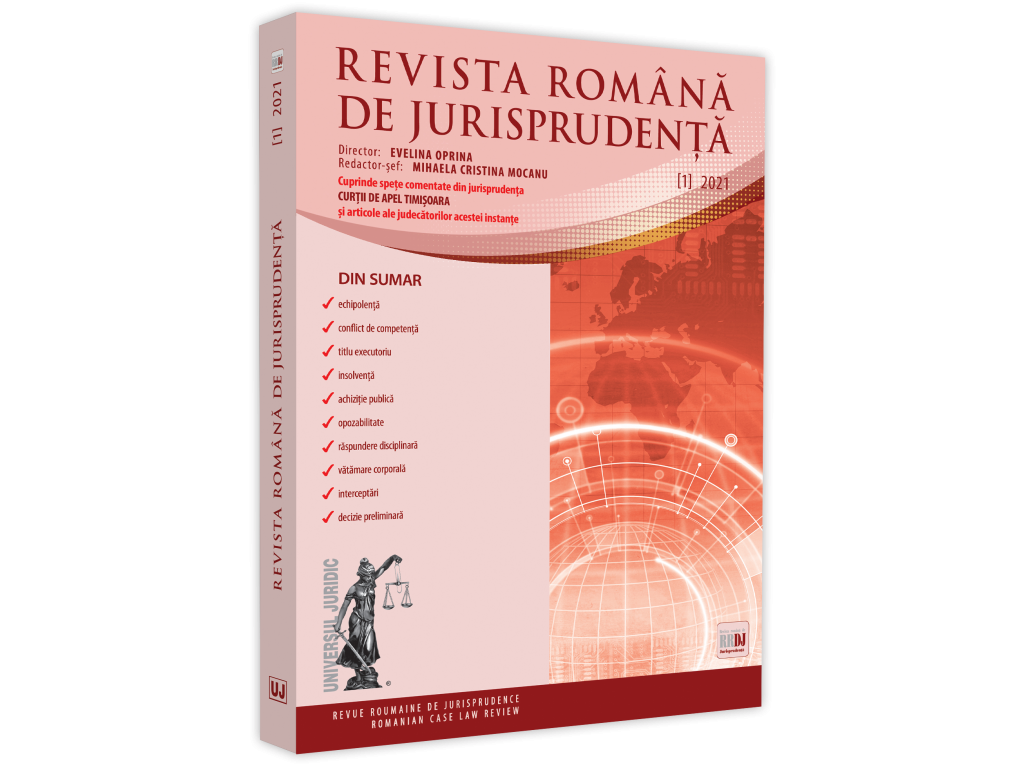Execution valences of the letter of bank guarantee
DEZBATERI
Abstract
In this study we will try a reckless foray into the complex and controversial issue of the letter of bank guarantee in the context of its enforceable effects. We will present some of our own reflections on this topic, with the hope that the legislator will intervene to clarify the regulation and end the controversies that have arisen in this field. Until then, from a procedural point of view, it is desirable the intervention of the supreme court to activate the mechanisms for unifying judicial practice.
The letter of bank guarantee is a complex legal figure in the landscape of current autonomous guarantees. Banks (credit institutions) frequently use this legal instrument offered to their customers in the regulated banking activity, for a varied remuneration (commissions, interest). From this perspective, the bank guarantee letter has a dual legal regime: guarantee instrument (banking) and, at the same time, credit instrument (banking).
The letter of bank guarantee had an unregulated legal regime (unnamed contract) before the entry into force of the new Civil Code on 01.10.2011. The source of contractual inspiration was relativized to the international regulations adopted by the Paris International Chamber of Commerce.
In the new Civil Code, the Romanian legislator reserved a separate article to the letter of guarantee at art. 2.321, which he ordered in the sphere of autonomous personal guarantees. The concise rules of procedure capture the main and essential features of this independent guarantee. However, different interpretations in theory and practice continued to manifest themselves, fueling doctrinal controversies and litigation functionally, but especially executively. The difficulty is given by the insufficient correlation of the common law norm with the special norms (banking law, securities law) and civil procedure norms. Or more precisely by the different interpretations resulting from the overall analysis, correlated with the norms of material and procedural law incident in the matter.
The discrimination operated by the legislator, respectively by the interpreter of the law in this matter (depending on whether the issuer and the beneficiary of the letter of guarantee are or are not a credit institution) is obvious. Banks have reserved a preferential enforcement regime in the light of special banking rules. In addition, they have advanced doctrinal support and judicial representation at the highest level, the judicial outcome tilting the balance in favor of the bank's mercantile interests.
Keywords: letter of guarantee; bank guarantee; right of recourse; executory title; credit title.








